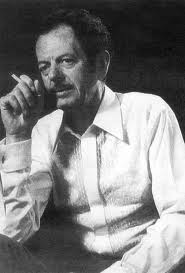Also known as:
Vasilis Tsitsanis, Βασίλης Τσιτσάνης
More People of Greece
More Topic Categories
Related Destinations
Vassilis Tsitsanis (18/01/1915 - 18/01/1984)
 Vassilis Tsitsanis was one of the greatest Greek composers and singers of Greek folk music (laiko) in the 20th century.
Vassilis Tsitsanis was one of the greatest Greek composers and singers of Greek folk music (laiko) in the 20th century.He was born in Trikala in January 1915. His father owned a mandolin, with which he played klepht songs; these were the first inspirations of Tsitsanis, along with the Byzantine hymns of the Orthodox Church. In 1926, he had a bouzouki and tried to learn on his own. During his high school years, he started studying the violin and participated in local feasts and celebrations, in order to gain some money for his family. However, he did not make public appearances with bouzouki, because it was illegal and was also considered of low social value, but his first songs were composed for bouzouki.
In 1936, he went to Athens to study Law at University of Athens and in order to make ends meet, he worked at a night club. The following year, he met the singer Dimitris Pedikopoulos, who helped him record his first song. Numerous hits followed the first. Several of his songs were sung by great professionals, such as Payoumtzis, Keromytis and Vamvakaris. However, it is time for different kinds of songs, mainly to be used for marches. The Metaxas dictatorship later banned all rebetiko songs that had been written earlier, as well as any type of eastern melody. Tsitsanis enlisted in the army and was appointed at the telegraph division in Thessaloniki; his lack of obedience infuriated his superiors, in a society overwhelmed by the military element.
During the German Occupation, he stayed in Thessaloniki, where he opened a small tavern and wrote the songs that would later become his greatest hits, after the War. In 1946, he returned to Athens and the Civil War greatly influenced his songs. However, he was censored and many were never published. After the Civil War, Tsitsanis started being on the rise again, free to publish his songs. He collaborated with many of the most important singers of the time, including Marika Ninou, Sotiria Mpellou, Stelios Kazantzidis, Gregoris Mpithikotsis, Manolis Aggelopoulos, Kaiti Grey, Poly Panou, Stamatis Kokotas, etc.
In 1980, a double album was recorded, named Harama, and sponsored by UNESCO, including some of his greatest hits. When the album was released in France in 1985, it won the Charles Gross Music Academy Award. Unfortunately, the great composer had already passed away a year earlier; he was admitted at the Brompton Hospital in London, and after a series of complications following a lung surgery, he died on his birthday in 1984.
See Also:
 Athens Photos
Athens Photos
 Santorini Photos
Santorini Photos
 Crete Photos
Crete Photos
 Meteora Photos
Meteora Photos
 Corfu Photos
Corfu Photos




